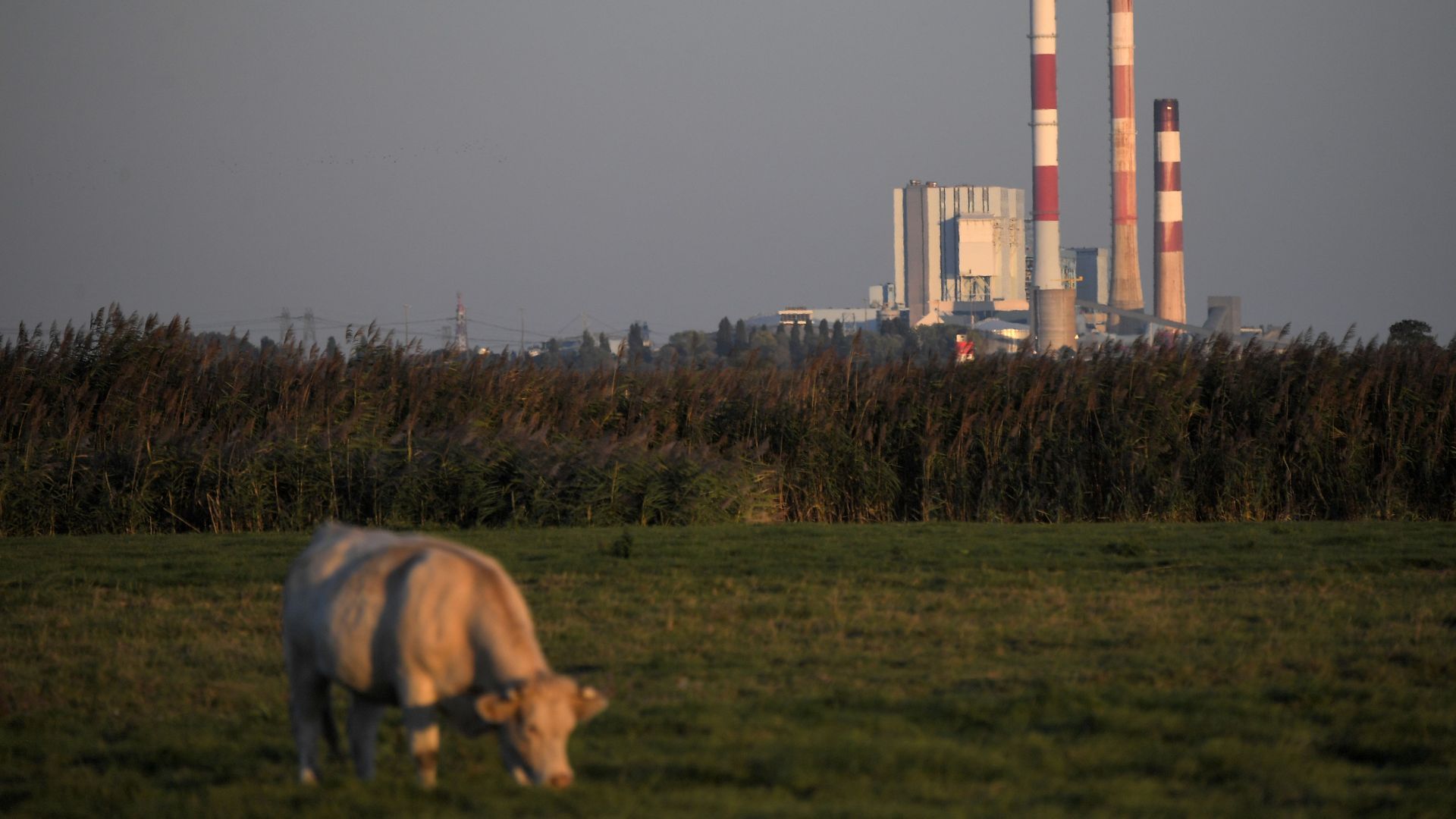Jan 4, 2019 - Energy & Climate
Expert VoicesDecline in global coal use still too slow to meet Paris targets
Add Axios as your preferred source to
see more of our stories on Google.

A cow near one of the last five coal plants in France, in Cordemais, on Sep. 27, 2018. The French government plans to close all coal plants by 2022. Photo: Loic Venance/AFP via Getty Images
